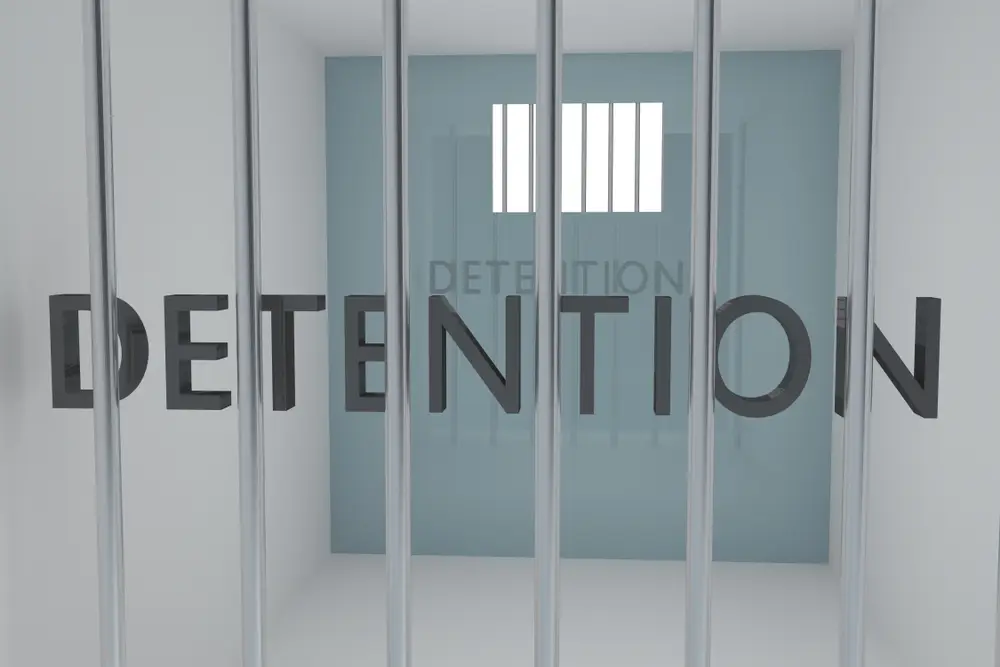Nearly 1,000 lawsuits have now been filed alleging widespread sexual abuse spanning decades within Illinois’s juvenile detention system. Survivors and their attorneys announced the latest wave of litigation on Wednesday, calling for accountability and exposing what they described as a systemic failure to protect children in state custody, Fox 32 Chicago reported yesterday.
The lawsuits center on allegations of abuse at Illinois Youth Centers (IYCs) in Chicago, Harrisburg, St. Charles, and Warrenville, as well as at the Cook County Juvenile Temporary Detention Center, formerly known as the Arthur J. Audy Home. The Cook County facility—located on the West Side of Chicago—is the largest juvenile detention center of its kind in the nation. According to legal filings, abuse occurred from 1996 through 2023, with the majority of cases taking place in the early 2000s. Attorneys say the victims were predominantly between 14 and 16 years old at the time, though some were as young as nine.
A total of 907 lawsuits have been filed, including 107 new cases just this week. The vast majority—nearly 70%—involve alleged abuse at IYC facilities. The remaining 31.4% are tied to the Cook County juvenile facility. The complaints allege that staff members, including juvenile correctional officers, raped, molested, assaulted, and psychologically terrorized youth over decades. Survivors describe being stripped, handcuffed, bruised, and violated—often during late-night strip searches that served as a pretext for abuse.
Caitlin, a survivor from the IYC-Warrenville facility, recounted, “I was left bruised, naked, handcuffed, shackled, and unable to move. My life has been severely impacted by the trauma I experienced at the hands of these state employees.” Another survivor, Charles Graves, said, “I thought that the officers in the facility were there to keep me safe and protect us, but they were only there for their own game—the game of taking our innocence and manipulating our minds.”
A plaintiff’s attorney, speaking at the press conference, said, “It’s the exposé of a state-run system that protected predators at the expense of children.” She added that when the state allows “dozens upon dozens of officials to perpetrate abuse across decades without consequence, that is a systemic failure.” According to the legal team representing the survivors, 86% of the victims are male.
Despite the scale of the allegations, attorneys say the state has adopted an aggressive legal stance. One attorney noted, “The attorney general of this state has taken the position… that traumatized children should have come forward with their claims before turning age 19.” Legal advocates argue this position is out of step with both clinical understandings of trauma and Illinois’s own Childhood Sexual Abuse Act, which was designed to give survivors more time to pursue justice.
Survivor Michael Moss described the ongoing effects of abuse on his mental health: “Daily, I suffer from PTSD and anxiety… I’m often fearful that others may judge me for what I’ve been through, but today I stand before you hoping to lead by example and eliminate those feelings of shame.”
At the time of publication, Illinois Attorney General Kwame Raoul’s office confirmed it was reviewing the complaints but declined to offer further comment.
This growing litigation follows a national trend of survivors using civil lawsuits to expose institutional abuse within detention centers, religious organizations, and foster care systems. As state governments across the U.S. adopt or defend lookback laws and statutes of limitations reforms, cases like this in Illinois highlight the long-term impact of systemic abuse—and the legal and moral reckoning now underway.
Explore Your Legal Rights
If you or someone you love experienced sexual abuse while in the custody of a state or county institution—such as a juvenile detention center, foster care system, or residential facility—you are not alone, and you may have legal options. Visit our Institutional Sexual Abuse Resource Page to learn more about your rights, recent legal developments, and how you may be connected with a compassionate attorney who can help you pursue compensation for the trauma you’ve endured.
You may also fill out the brief, confidential form below to have our intake team see if your case qualifies for legal representation and a possible settlement. There is no commitment or obligation.




